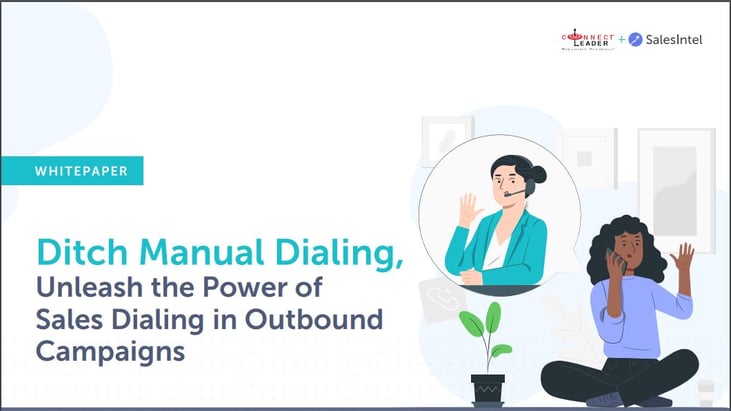3 min read
7 Ground Rules for Sales Call Coaching
By: Steve Richard, ExecVision on Jan 6, 2021 11:58:16 AM

By Steve Richard, Chief Evangelist & Co-Founder of ExecVision
My mission and life’s work is to help as many sales professionals as possible become wildly successful. In 10 years as a sales trainer, I’ve observed one thing:
Top sales reps have created good conversation habits in the course of their careers.
Over the years, I’ve observed a lot of sales teams listen to recorded calls and give feedback in groups. Allowing managers and peers to listen to calls can be nerve racking for sales reps.
What is sales engagement? Read this blog.
I’ve seen the good, the bad, and the ugly. This inspired me to write these call coaching ‘rules’ along with my good friend Gary Milwit:
- Coaching sessions should not include anything disciplinary. Do not use this time for any disciplinary action. This time block must be a safe zone for reps so they buy-in to coaching as a positive part of their development.
- No more than two coaches should participate in call reviews during a coaching session at any one time.
- Help reps develop conversation habits through repetition. The key to the call coaching is repetition. Adults need to revisit the same lessons over and over in order to drive behavior change – it takes 21 days to form a new habit. Each new sales skill – like active listening – takes 21 days to make habitual. For this reason, sales reps should have one call reviewed per week. Sometimes the sessions will be repetitive.
- Always lead with something positive. Neuroscience shows that when people are under stress, the part of the brain called the prefrontal cortex (the rational brain) shuts down, and the amygdala (the lizard brain) takes over. We want sales reps receiving feedback to feel like they are in a safe, calm place to keep their rational brain turned on. The best way to do this is provide positive feedback first. Think about it. When an athlete goes to look at their game film, what do they want to see first? They want to see the plays where they did something amazing. It causes dopamine to be released so they feel good. Then, they dig into what needs to be improved.
- No personal attacks during coaching sessions. This one is obvious. Critique the call, not the person. All feedback is constructive and specific. Saying you don’t like the call doesn’t help anyone. You need to give the person concrete and actionable advice on what to change for next time. Gary Milwit takes this rule a step further. His coaches are to find only positives on the call. Peers and those being coached point out areas for improvement.
- Coach on no more than two skills per call. Sales leaders try to teach and coach or remote coach on WAY too many things. More than two areas for improvement overwhelms the sales rep and causes them to shut down. Pick the two biggest skills to work on, and then send them off to use and reinforce what they learned.
- Have fun with it. My old boss at CEB, Paul Ironside used to say, “Relax, it’s just a sales call. This is not life and death surgery. If it doesn’t go well, so what? Life goes on.” Call coaching is a celebration of the game we call sales! Make it fun and light!
What are your rules for sales coaching?
BIO: Armed with more sales knowledge in his pinky toe than most veteran teams, Steve Richard’s passion, mission, and life’s work is to help sales professionals become wildly successful. Steve has been featured in The Harvard Business Review, The Washington Business Journal, The Washington Post, CNN/Money and is a guest contributor on CNBC. He has also been named one of the Top 25 Most Influential People in Inside Sales by the American Association of Inside Sales Professionals (AA-ISP). He currently lives in Arlington, Virginia with his wife and four children. Together, the family enjoys jogging, skiing, scuba diving, camping and checking out the museums and dining options in the DC area.
This blog was originally posted on ExecVision.
Related Posts
8 min read
What’s the Best Dialer for Cold Calling? Real Insights Backed by 20M+ Calls
Nov 24, 2025 by Koncert Marketing
13 min read
Stop Wasting Dials: How Ultra-Low Latency AI Dialing & Real-Time Data Enrichment Deliver 10X Connect Rates
Oct 30, 2025 by Koncert Marketing



